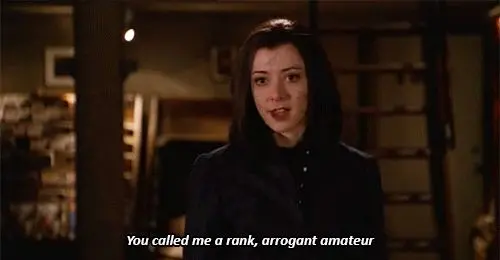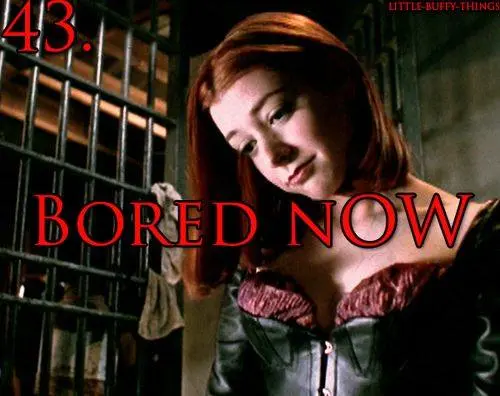

In light of recent reading, thoughts, and discussions around our house, I've made some realizations about how I respond to games now. These are based on my priorities as a player, GM, and designer, as well as someone who is struggling to continue enjoying my favorite hobby in the face of Real LifeTM and Stone Cold Adulting. Nobody has to agree with me - but after finally saying them out loud today, I have come to see how important these aspects are to me. I am going to strive to address them in my gaming from now on.
It's fine to make suggestions and review some personality archetypes, particularly to show the range of possibilities and help new gamers find their feet; that's just good modeling behavior. It can also be helpful to have an overview of common moral codes in the setting as a way to show players what to expect. And while I understand that folks often want to discourage "murderhobo” characters from acting like asses, laughing about it, and getting away with wholesale destruction, I am not convinced that morality or personality straight-jackets are the way to do it. We've seen them for decades now. They're never going to work any better, and they are often taken as The One True Way to play a game, even when they're meant to be loose examples. But worse, they often hem in more experienced gamers, especially when GMs try to run as close to RAW as they can. This leaves some gamers with training wheels they would give anything to be rid of and feeling like this:

Image of Dark Willow from Buffy the Vampire Slayer, unmodified
I'll be honest: Whenever a book gets too heavy-handed about telling me how my character must act or feel, I get turned off fast, particularly at this late date. Tying in-game rewards and penalties to narrow behaviors only makes me resent the whole business more. I don't need a cookie for roleplaying a person other than myself. That is what I have always come to the table to do. I also don't need to deal with the rolled-up newspaper of a penalty because my character did something that wasn't nice. If they feel bad about it, they'll have their own problems interacting with the story. I don't need to be told how my character should feel about who they are or what they do - they tell me, and I act it out. If perks and punishments are optional, that's cool, but if they're hard-wired into the system, I'm disappointed. If you want me to truly respect your game, you need to leave room for gamers who are at different stages in their needs and for different ways to play in your setting.

Meme from Vampire Willow from Buffy the Vampire Slayer, unmodified
I'm not saying that I need to have total control of my character for every second of each scene. There are going to be effects that overcome a person's control of their body or mind. They could be knocked out, jolted with enough volts, mind-controlled, and so on. While upsetting, this is understandable to an extent. The problem is that a character is a player's sole vehicle to interact with the setting, so if control is lost for too long, the player is left in limbo. And limbo is generally boring and frustrating, particularly since there isn't anything you can do to get out of it except wait.
Related to this, however, is the idea of a character degenerating to such a point that they are taken away from the player permanently. The logic seems to go something like this: If you do enough awful things, you will begin to crack and eventually you will not be able to master yourself. Whatever is guiding you is something else; you have changed too much. Your character becomes somebody that you used to know and you must start another. The problem is that there are plenty of people who do messed up things but also maintain their selfhood, no matter how toxic it is. They go home and tuck their kids to sleep at the end of the day. They might be unmasked eventually, but until then, they function, sometimes frighteningly well. Unless you are playing Call of Cthulhu and dealing with such alien madness, there is little reason to strip a player of their character if everyone still wants them in the game.
It could be that a GM doesn't want to run for a character who's vile, but that's another matter and should be determined at the table. A character at the bottom presents opportunities for a while different type of experience which can be acknowledged and allowed for. It might not be for everybody, but it doesn't have to lead to depths of depravity, either. Considering how many gamers are fully grown adults and have been so for some time, I appreciate when games allow for nuance in their official products. Considering how much I invest in my characters and how precious my play time has become, I am not interested in the threat of losing my character because I play them long enough to cross a line in the sand one too many times.
I choose a character type in part because I am interested in their package of abilities. Sometimes, the things they can do are quite exciting and I want to try them out fairly often. I don't tend to pick powers that I'll only use on rare occasions, and I play supernatural characters because they can do extraordinary things. It's okay if a character can't or shouldn't use everything in public, or in crowded places full of civilians; that's just common sense. But when mechanical penalties start cropping up just because I want to use this nifty trick that my character is supposed to be able to do, I get sick of it fast. No, it isn't just about being patient or thinking strategically. It's about ready access to the whole palette of my character.
Likewise, I have grown tired of games that pile on ways to make abilities essentially inaccessible, even when they should be obtainable by apprentice or journeyman level characters. Either they must be learned from rare groups or tomes characters are unlikely to encounter, or they are very costly, or they are given such poor mechanics that even if you have the ability, good luck getting it to work. I'm sure that some folks just chalk it up to an extra level of challenge or part of being whatever level a character is at, but from where I sit, a character should be able to use whatever tricks they have on their sheet and succeed a decent percentage of the time without min-maxing, extensive preparation, etc. If they can't, they're being cheated, and my inner Dark Willow comes out.
What are your own sins of game design?
<< Guide to Character Voices Pt. 1 Guide to Tabletop Roleplay Pt. 1 >>
Latest Updates